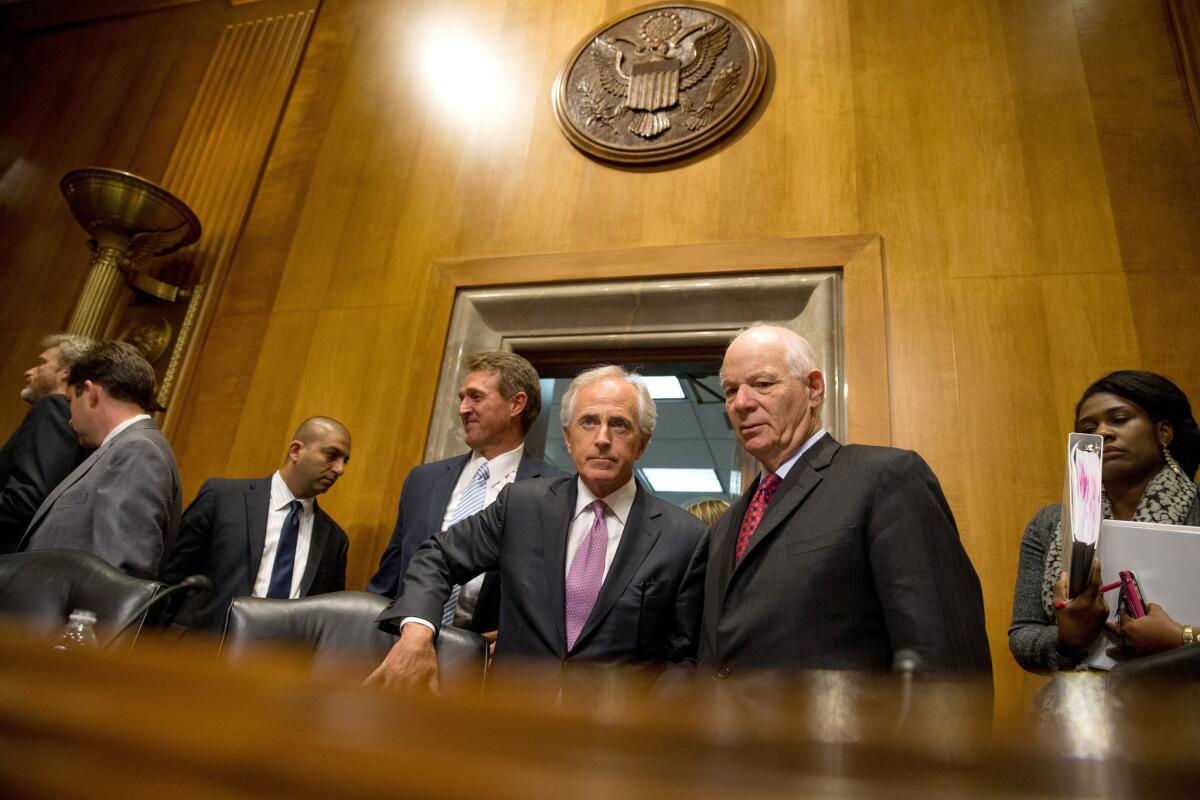Editorial: Congress playing a risky game with Iran talks

The Obama administration is putting a brave face on its acceptance of legislation in Congress that injects the legislative branch into ongoing negotiations over the future of Iran’s nuclear program. But while the bill approved unanimously Tuesday by the Senate Foreign Relations Committee could have been worse, it is still ill-timed and could make an agreement less likely, which is the not-so-ulterior motive of at least some of the bill’s supporters.
Until recently the president had been expected to veto any legislation requiring congressional approval of an agreement reached by Iran and the so-called P5+1 — the five permanent members of the U.N. Security Council and Germany. June 30 is the deadline for a final agreement that would fill in the blanks of the “framework” agreed to in Switzerland on April 2.
But as legislation to require a congressional role gained bipartisan support, the administration shifted gears and began negotiating with Congress. The resulting Iran Nuclear Agreement Review Act of 2015 would require Obama to submit a final deal to Congress, which could approve it or pass a resolution of disapproval that would permanently prevent the president from waiving sanctions authorized by Congress.
The bill is an improvement over previous versions. It shortens the period Congress would have to scrutinize an agreement. And it softens language that conditioned sanctions relief on Iran ending support for terrorism — a very serious issue, but one that has not figured in the negotiations and should be addressed separately.
And while the bill would allow an up-or-down vote, it seems likely that the administration would have enough votes to sustain a veto of a resolution of disapproval. That scenario seems to have influenced the administration it its reluctant decision to accept the legislation.
What is often overlooked is that, even in the absence of this legislation, Congress eventually would have to vote to permanently lift the sanctions it has authorized. It also would have the option of trying to pass legislation to stop Obama from waiving existing sanctions if a final agreement with Iran weren’t to its liking. So what’s the rush to pass something now? Doing so could interfere with what are still delicate negotiations.
On Wednesday, Iranian President Hassan Rouhani said, patiently, that “we are not negotiating with the U.S. Senate or the House of Representatives.” But others in the Iranian leadership opposed to a deal might see the push for legislation as proof that Congress is determined to sabotage any agreement. We continue to believe Congress should refrain from legislating until the negotiators complete their work.
Follow the Opinion section on Twitter @latimesopinion and Facebook
More to Read
A cure for the common opinion
Get thought-provoking perspectives with our weekly newsletter.
You may occasionally receive promotional content from the Los Angeles Times.






